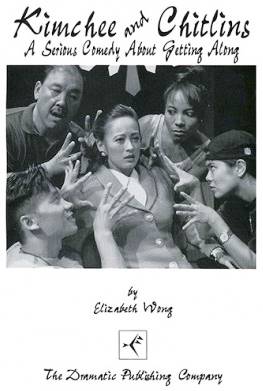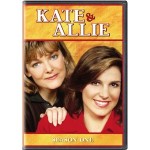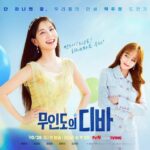 By Jae-Ha Kim
By Jae-Ha Kim
Chicago Sun-Times
May 6, 1993
Chinese-American. The hyphen between the nationalities says it all to playwright Elizabeth Wong, whose latest piece, “Kimchee and Chitlins,” is running at the Victory Gardens Studio Theatre.
“I was on CNN recently and they asked me how I wanted to be identified,” Wong said. “They asked if they could identify me as a `Chinese-American playwright.’ I discovered at that very instant how much I hate the hyphen. I was born and raised in Southern California. I am an American of Chinese ancestry. These hyphens are used almost subconsciously, not only to define who you are, who you aren’t. It seems benign, but it’s not. People unknowingly subvert your self esteem by questioning what you are.
“When people ask me where I’m from, I know what they want to hear, but I say California. They usually say, `No, where are you really from?’ I force people to go that extra step to find out a little bit more about me.”
Both a social satire and a comedy, “Kimchee and Chitlins” (named for the trademark dishes of Koreans and African Americans respectively) deals with race relations between Blacks and Koreans in New York. Set in a small, family-owned grocery store, the play revolves around cultural misunderstandings and prejudices on the part of both races. Some of the play’s funniest moments occur when the fighting factions portray their view of each other.
“I wanted to make it a comedy because people often view race relations with fists clenched, minds closed and points of views narrowed,” she said. “I think a comedy helps them unclench those fists and kind of relax a little bit. They get to laugh at themselves and step away from the issue enough to look at it and be willing to step into another person’s shoes.”
Wong got the idea for the play three years ago when she was watching a news broadcast about conflict between African Americans and Koreans in New York. By the end of the newscast, she realized the reporter had given her no insight into what the conflict was about – just that Blacks and Koreans were involved.
“It was like this on all the channels. The reporters talked to angry blacks who were shouting at the Koreans,” Wong said. “But nobody talked to the Koreans. I thought, `Somebody is falling down on the job.’ Why did all these reporters across the board miss the boat? One of the reasons obviously is the language barrier, but no one even mentioned that. They just excluded one-half of the story.”
A former print reporter at several newspapers, Wong wrote the play to explore the way news is gathered and covered. More important, though, she wanted to create a play that delved into race relations between African Americans and Koreans, which she hadn’t seen done before.
“There is this melting pot image that, if you throw all these different people into America, they will blend together,” Wong said. “That may be true, but I also see the melting pot in which people are chafing and boiling and running up against each other making sparks. That’s more of a dynamic that I see and one that hasn’t been
addressed. Usually people only address black and white issues. I wanted to do something different.
“There are so many of the same stereotypes used about Asians and blacks – that they’re all alike. I tried to break through that a little bit in the play, but differentiating between the different African-American subgroups and different Asian nationalities.”
Wong has been asked more than a few times why she didn’t write about Chinese characters rather than Koreans. Her answer?
“People always ask me that question, but no one will ask that of – pick any famous white writer,” Wong said, laughing. “James Michener wasn’t Hawaiian, and yet he wrote beautifully about Hawaii. I think if you do your homework and are sensitive to the heart of the people’s wants, desires and concerns, you can be true to your characters.”





